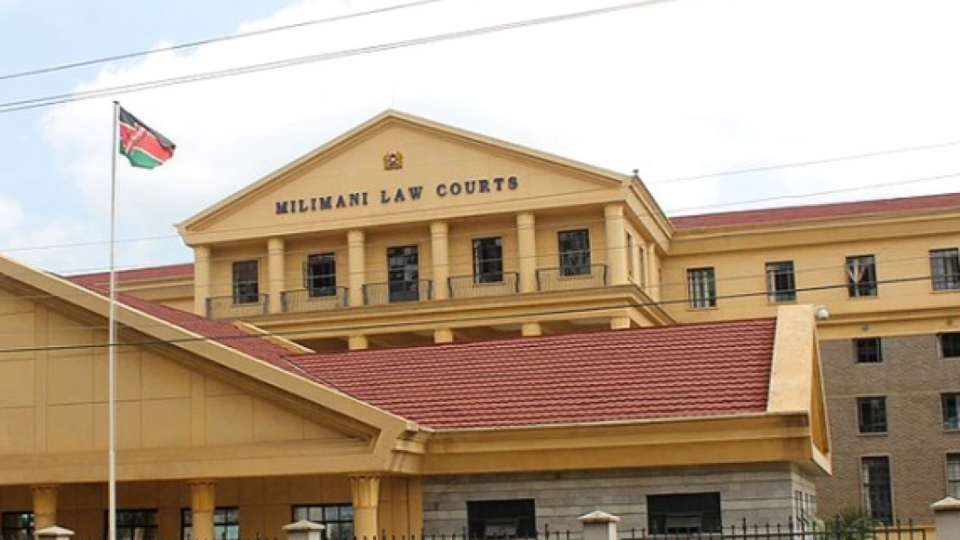High Court Orders Mbagathi Hospital to Treat Inmates Despite Unpaid Bills
On Monday, September 8, 2025, the High Court in Nairobi issued a landmark ruling ordering Mbagathi Hospital to immediately resume medical treatment for inmates referred by the Kenya Prisons Service (KPS), despite an ongoing financial dispute over unpaid medical bills exceeding Ksh12 million. The decision, delivered by Justice Bahati Mwamuye, ensures that prisoners regain access to essential healthcare services, addressing a crisis that left many inmates without medical care since August 4, 2025.
The court's intervention came after Mbagathi Hospital suspended services to inmates due to the outstanding debt, which has accumulated since 2018. The hospital reported that only Ksh6.7 million of the Ksh12 million owed by the State Department for Correctional Services had been paid, leaving the facility financially strained and unable to sustain operations. On August 4, 2025, the hospital formally notified the KPS that it would halt all medical services for prisoners until the debt was cleared, creating a standoff that sparked concerns from human rights groups and prompted legal action.
Justice Mwamuye emphasized the constitutional rights of inmates in his ruling, citing Article 43 (1) of the Kenyan Constitution, which guarantees every person, including those in custody, the right to the highest attainable standard of health. He further referenced Article 51 (1), which ensures that prisoners retain all fundamental rights and freedoms under the Bill of Rights, except where such rights are incompatible with incarceration. The judge warned that denying inmates access to healthcare posed a significant threat of constitutional violation, stating, "This Court is satisfied that there is a significant potential threat of violation or continued violation of the Constitution to warrant interim intervention by this Court."
The suspension of services had left inmates, including those with chronic and life-threatening conditions, in limbo, raising alarms about potential human rights abuses. Kituo Cha Sheria, a legal aid organization, filed a petition under a certificate of urgency on September 3, 2025, urging the court to compel the Ministry of Health and Mbagathi Hospital to restore medical services without discrimination. The organization argued that the suspension violated inmates' rights to health, dignity, and freedom from cruel, inhuman, or degrading treatment, as outlined in Articles 43, 28, and 29 of the Constitution. The petition highlighted that prisoners, being fully dependent on the state for their welfare, faced grave risks of deteriorating health, preventable suffering, and even death due to the lack of access to care.
The court's conservatory orders now mandate Mbagathi Hospital to admit, receive, and treat all prisoners, regardless of the urgency of their medical conditions. This ruling provides temporary relief to inmates, ensuring access to life-saving care that had been withheld for over a month. However, the decision places Mbagathi Hospital in a challenging financial position, as it must continue providing services despite the unpaid debt, which the hospital claims has strained its ability to purchase essential supplies.
To address the financial dispute, the court directed the State Department for Correctional Services to pay at least Ksh10 million toward the outstanding debt within 14 days. The Principal Secretary of the department must also file a sworn affidavit by September 26, 2025, confirming the payment. The orders will remain in effect until October 8, 2025, with a court mention scheduled for October 7, 2025, to review compliance and determine further steps.
The ruling has broader implications for healthcare funding and accountability in Kenya’s public health system. Mbagathi Hospital’s financial struggles underscore the challenges faced by public healthcare facilities in managing unpaid bills while continuing to provide services. The Kenya Prisons Service has appealed for services to resume while negotiations for a payment plan continue, and in the meantime, prison authorities are exploring alternative hospitals to handle urgent cases.
Human rights advocates have welcomed the court’s decision, viewing it as a critical step in protecting the constitutional rights of inmates. However, the ongoing dispute highlights deeper systemic issues in Kenya’s healthcare and correctional systems, including funding shortages and coordination failures between state agencies. As the case progresses, stakeholders will be closely watching how the government addresses the outstanding debt and ensures sustainable access to healthcare for prisoners.+


